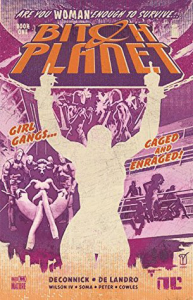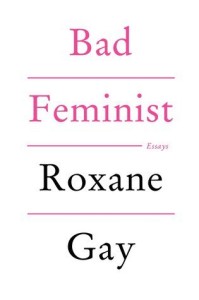Is there even any point in pretending I’m going to write a review every day in November? I thought that I was going to be fine on Nov 9th/10th, but immediately afterwards I just let the fear surrounding political events overtake me. I’m not fine. I’m scared. But I’ve felt guilty about not writing anything here when I promised I would, so here we go. Also, fuck the 300-word limit. Today I’ve got a lot of thoughts to deal with.
 Title: Letters to Tiptree
Title: Letters to Tiptree
Editors: Alexandra Pierce and Alisa Krasnostein
Publisher: Twelfth Planet Press
Format: eBook
Rating: 4 out of 5
How I got it: I purchased a copy from Weightless Books
Writing a letter to a pen pal can be a transformative act – just look at the plot of Pen Pal by Francesca Forrest, which I read earlier this year. It can also be a reassuring one. A few months ago, I started up a pen pal project of my own with about a dozen people. Some were friends from high school, some are fellow editors, and some are people I know only through Twitter. It helps me to feel connected.
That same impulse – connection, engagement, change – is behind Letters to Tiptree, an anthology edited by Alexandra Pierce and Alisa Krasnostein that celebrates the impact of James Tiptree Jr (aka: Alice Sheldon) on science fiction and fantasy. James Tiptree Jr. burst onto the science fiction scene in the late 60s with stories that were engaging, challenging to gender norms, overtly feminist, and (in the words of Robert Silverberg) even “ineluctably masculine”.
Since he corresponded with others in the community only through letters and never actually attended any awards ceremonies or met other writers in person, rumours swirled about the true identity of the man behind the name. The bubble popped when an enterprising (read: intrusive) member of the SF community dug through some obituaries based on an off-hand comment that Tiptree made about his life and discovered that “James Tiptree Jr.” was not only a pseudonym, but one used by a female author – Alice Sheldon, a former CIA worker with a Ph.D in psychology.
She continued writing under that pseudonym until her death in 1987, when she shot her husband in her sleep and then shot herself. Years of caring for him in his old age and dealing with her own simultaneous health problems took its toll.
Sheldon led a difficult, somewhat morbid, but well-documented life, and the extent of that was brought into further focus with the publication of a well-regarded biography by Julie Phillips. That history of correspondence with other SF writers is the central conceit behind Letters to Tiptree, as the bulk of the book contains letters from contemporary authors addressed to Tiptree/Sheldon discussing her impact on the genre and on them in particular.
Many of these letters congratulate her for having broadened the genre’s horizons. Many ask her why she chose the pseudonym that she did. Many draw parallels between her upbringing (peripatetic and somewhat isolated) and their own. Many relate to her conflicted relationship with gender identity and gender presentation. The multiplicity of themes and and counterpoints throughout the book – male vs female, domestic vs foreign, geopolitical stability vs unpredictability – combine and diverge so that the effect is like a woven scarf of ideas.
In addition to the letters written posthumously to Sheldon/Tiptree, the book contains actual correspondence between Sheldon and other female SF writers of the 1970s, like Ursula Leguin and Joanna Russ. Most of these letters are dated from after Sheldon’s identity became known.
There’s a strange, dizzying sense of intimacy in reading these letters, precisely because they were meant for a private audience. I felt like spying. But reading them also felt intensely validating because these writers were pouring out their souls in a way that people today really don’t, anymore. Or at least, such soul-pouring happens in public. The letters are long and full of vivacity and detail. I hope that in the correspondence I have with my pen pals, I can approach such levels of wit and caring!
It was a confluence of things that led me to read Letters to Tiptree this autumn. First, there was the fact that it was unfairly kept off of this year’s Hugo ballot by the Sad/Rabid Puppies. Had it actually been nominated, it would have been extremely worthy of the award. Second, Twelfth Planet Press is planning a similarly-themed anthology dedicated to Octavia Butler. Butler is an author I’ve heard a lot about, but my lack of knowledge of her work is one of the many glaring gaps in my understanding of science fiction.
Then there was Elena Ferrante.
Ferrante is an Italian author well-known for her reclusivity and use of a pseudonym. Claudio Gatti’s extensive efforts to determine her true identity have been met with hand-wringing this past October. The parallels between Ferrante and Tiptree are striking: the use of pseudonyms, the literary impacts on their respective fields, and the fact that both authors essentially had their anonymity wrested away from them.
I haven’t read any primary works by either Tiptree or Ferrante. It’s high time I start. But I know that doing so comes with its own sense of intrusiveness and rubbernecking. I don’t know if I will be able to enjoy their works on their own merits, and this feeling of the author’s life intruding on the reader’s experience was one of the primary reasons Ferrante tried so hard to stay out of the public eye.
One thing that makes me feel uneasy about the whole project, despite my enjoyment of the anthology’s many attempts to bring Tiptree’s life into context, is knowing the circumstances surrounding Tiptree/Sheldon’s death. She had long expressed thoughts of killing herself, and knew that if she did no one would be able to take care of her husband, who had lost the ability to care for himself. In a sense, it was a mercy killing. But I also can’t escape the fact that she is a murderer. Would science fiction as a whole be so kind in upholding the legacy of a male author who did a murder/suicide with his wife? I doubt it. But yet we do so for Tiptree. It’s strange how even in her death, she’s still found a way to disrupt gender norms.



 I’ve gotten very good at being polite. I tamp down my fear and my rage and pretend it doesn’t exist, because acknowledging it can be dangerous — women who aren’t polite aren’t respected.
I’ve gotten very good at being polite. I tamp down my fear and my rage and pretend it doesn’t exist, because acknowledging it can be dangerous — women who aren’t polite aren’t respected.
 Title: Bitch Planet, Vol 1: Beautiful Machine
Title: Bitch Planet, Vol 1: Beautiful Machine
